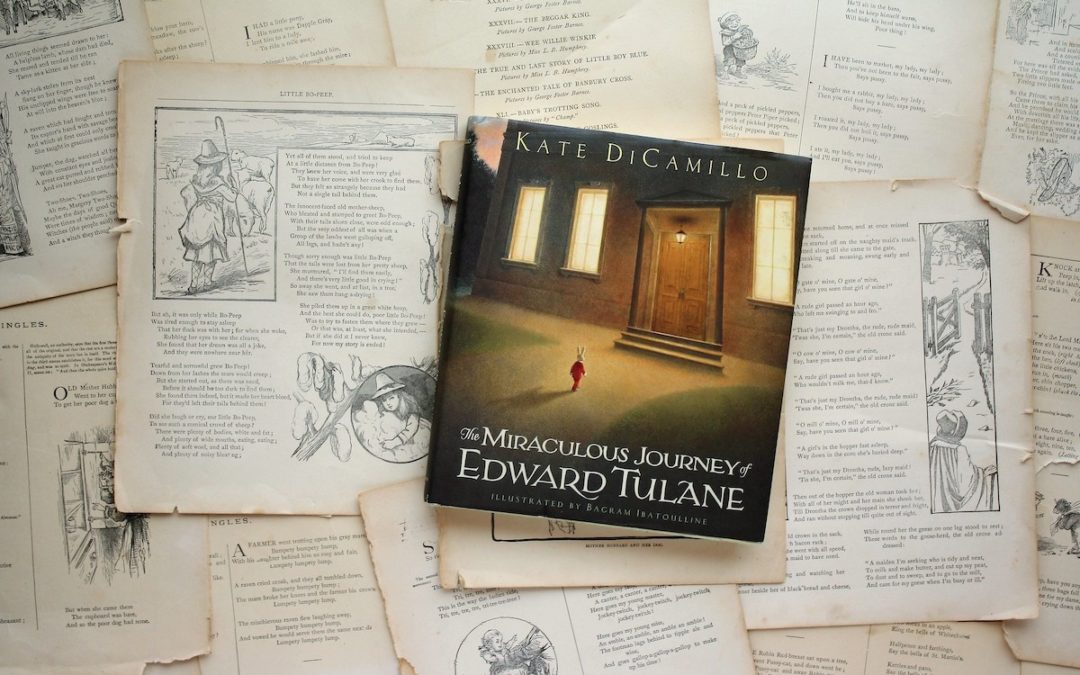Before it was Planet Fitness, it was Borders Books.
Yes, in Kona. I still haven’t quite forgiven Borders for going bankrupt and leaving us without a massive bookshop.(But what am I talking about, I left Kona before Borders did—so who’s really to blame?)
But before it closed, I was raised in Borders. When Mum had meetings in the cafe, I spent hours in the kid’s books section. Not because she dragged me with her—but because I begged her to come.
And I’ll never forget the day I read The Miraculous Journey of Edward Tulane.
It was 2006. I’d just found the latest release by Kate DiCamillo. I had at least an hour, so I sat down right then and there, and started reading. Cover to cover.
Edward Tulane is the story of a proud, insensitive china rabbit who is adored by his owner, Abilene—yet loves no one but himself. Edward ends up thrown overboard accidentally, and begins a long, gut-wrenching journey of learning to love—and lose the ones he loves.
That morning, cross-legged on the Borders carpet, I cried.
All the way to the very end.
One of the reasons I love children’s literature (and why I want to write it)—is that, done well, it summarizes the gut-wrenching and beautiful parts of life into just a few chapters. And when you revisit those stories as an adult? They intertwine with your experiences, and you understand the author (and life) just that little bit more.
The Miraculous Journey of Edward Tulane was no exception.
On New Year’s Day, I was journaling about the upcoming year (said every Christian girl ever—I know, I know).
But it wasn’t a fun or sweet moment. The more I thought about 2023, the more I realized I wasn’t excited. If anything, I was dress-rehearsing for hard things to happen. Hopeful in small doses, yes.
But being 29 and single, with grief and loss lingering since leaving New Zealand after 10 years, and add a healthy dose of gratitude for the good things that did happen in 2022—it all made me wonder how 2023 could be any better.
That’s when I remembered Edward Tulane.
There’s a moment near the end of the book (spoiler alert, I apologize) where an old antique doll challenges Edward to love again. This isn’t at the start of his journey—it’s after he’s learned to love, and lost many he loved.
So naturally, his response is bitter: Don’t talk to me about love. I don’t care if anyone comes for me. I’m done with loving. It’s too painful.
But the old doll persists. (Don’t we all need someone like that?)
She tells him:
“You must be filled with expectancy. You must be awash with hope.
p. 189
You must wonder who will love you, whom you will love next.”
Edward doesn’t turn all hopeful in that moment (I feel you, Edward). The old doll is chosen by a young girl, and he’s left in the antique store. It doesn’t say how long he sits on that shelf.
But the challenge didn’t fall on deaf ears.
He repeated the old doll’s words over and over until they wore a smooth groove of hope in his brain:
p. 195
Someone will come; someone will come for you.
And on New Year’s Day, that’s what came to mind: “a small groove of hope”.
I pictured sand paper, wearing away the rough edges, creating a smooth path in a piece of pine. Not instant, but a gradual, repetitive motion that changed the makeup of something otherwise unchangeable.
Romans 12:2 talks of the “renewing of the mind” and brain science tells us that thoughts “take the path of least resistance”. Which means, to change your thoughts—it takes some work. It takes repetition. And it takes repeating words of truth over yourself—over and over again.
Words like this:
Someone will come; someone will come for you.
So, on New Year’s Day, I cried. I knew I’d lost more hope than I’d like to admit.
Yet there was Jesus, poking, prodding—saying: hope again.
And that “small groove of hope” has been getting deeper ever since.
“The Miraculous Journey of Edward Tulane” by Kate DiCamillo (2006, Candlewick)
Photo Credit: Little Book, Big Story



